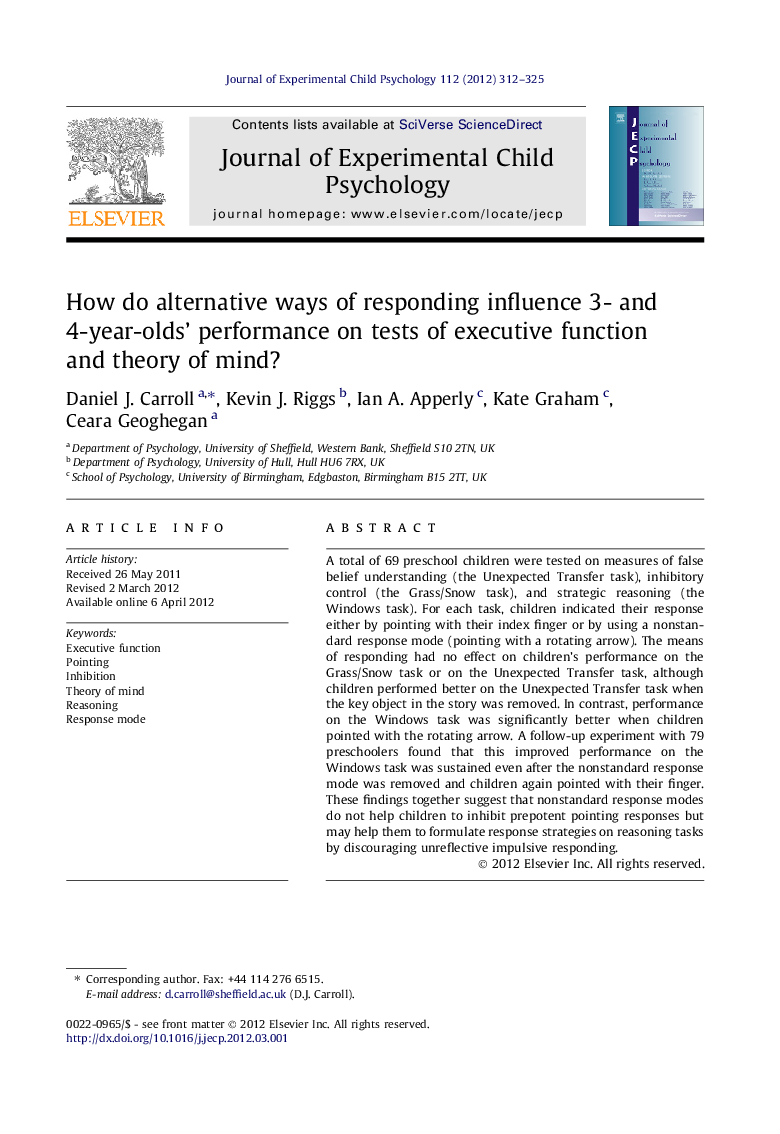| Article ID | Journal | Published Year | Pages | File Type |
|---|---|---|---|---|
| 918336 | Journal of Experimental Child Psychology | 2012 | 14 Pages |
A total of 69 preschool children were tested on measures of false belief understanding (the Unexpected Transfer task), inhibitory control (the Grass/Snow task), and strategic reasoning (the Windows task). For each task, children indicated their response either by pointing with their index finger or by using a nonstandard response mode (pointing with a rotating arrow). The means of responding had no effect on children’s performance on the Grass/Snow task or on the Unexpected Transfer task, although children performed better on the Unexpected Transfer task when the key object in the story was removed. In contrast, performance on the Windows task was significantly better when children pointed with the rotating arrow. A follow-up experiment with 79 preschoolers found that this improved performance on the Windows task was sustained even after the nonstandard response mode was removed and children again pointed with their finger. These findings together suggest that nonstandard response modes do not help children to inhibit prepotent pointing responses but may help them to formulate response strategies on reasoning tasks by discouraging unreflective impulsive responding.
► We investigate how changing the way children respond affects cognitive performance. ► Alternative response modes improve children’s strategic reasoning. ► Alternative response modes don’t improve Theory of Mind or Inhibitory Control.
